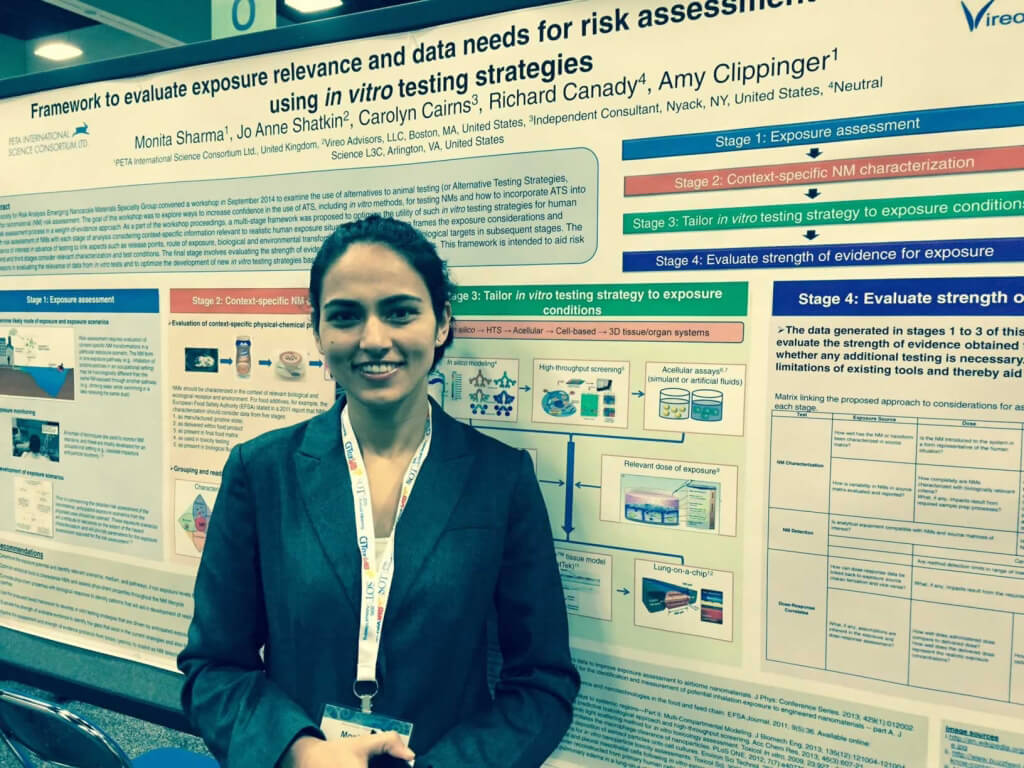Cutting-Edge Toxicology Testing Doesn’t Involve Animals
This week, scientists from the PETA International Science Consortium Ltd. (PISC) will share ways to replace animal testing with cutting-edge non-animal tests.

This year’s annual meeting of the Society of Toxicology (SOT) in San Diego features more than 160 scientific sessions and 2,400 poster presentations, all with the goal of advancing science in order to create a safe and healthy world. The best way to achieve this goal is to move away from unreliable animal tests and toward modern tests that are effective at evaluating a substance’s risks for humans and the environment while sparing animal lives.
The PISC team, led by PETA’s Dr. Amy Clippinger, who is the newly appointed vice president of the SOT’s specialty section on in vitro and alternative methods, presented three informative posters at this meeting. The first detailed PISC’s popular webinar series describing non-animal testing methods that can be used to meet testing requirements in Europe. The widely viewed webinars have successfully provided guidance to numerous companies on incorporating testing methods that are both humane and effective.
The second poster focused on the use of in vitro strategies for testing nanomaterials. Although nanomaterials are tiny—smaller than one-tenth of a micrometer, or tinier than the width of a strand of hair—they are starting to change our lives in big ways. They’re used in the production of everything from food packaging to fabric to paint, and they have recently become the subject of extensive safety testing. Earlier this year, PISC scientists organized a two-day workshop about nanotechnology testing methods, and their poster illustrates the best strategy for testing nanomaterials that will promote the use of non-animal methods while also advancing human safety.
The third poster promoted Effectopedia, an online collection of information that can be used to help scientists predict how a substance will affect humans or the environment. This collective grouping of scientific data allows scientists to work together to predict hazards without using animals.
Be sure to check back here for the latest on PETA’s and PISC’s efforts to help government regulators, researchers, and corporations around the world shift more quickly to modern, humane science.

